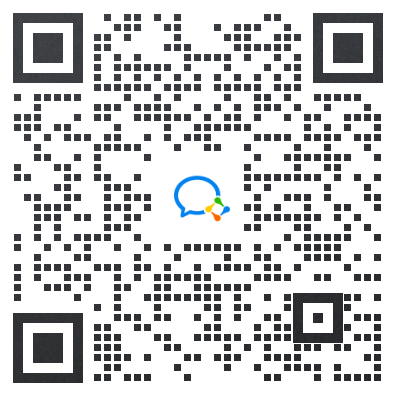2016.12.26 13:21
新东方在线小学网整理了2017年小升初英语语法经典例题,供同学们参考,希望能够帮助同学们提高学习成绩。
小升初英语语法经典例题:情态动词
1. “Mike is often absent from class.” “Tell him he _____ answer for it if he goes on behaving like that.”
A. shall B. will
C. would D. can
【陷阱】几个干扰项均有可能误选。
【分析】最佳答案选A。shall 用作情态动词主要有以下两个用法:
(1) 用于疑问句中征求意见。如:
Shall I help you? 要不要我帮帮你?
Shall I open the window? 要我把窗子打开吗?
(2) 用于陈述句中表示允诺、告诫、警告、威胁、命令、规定、必然性等(可用于各类人称)。如:
You shall suffer for this. 你会为此事吃苦头的。(表威胁)
Each competitor shall wear a number. 每个参赛者要戴一个号码。(表规定)
You shall hear everything as soon as you come. 你一来就可听到所有情况了。(表允诺)
请做以下试题(答案均选 shall):
(1) “I promise that she _____ get a nice present on her birthday.” “Will it be a great surprise to her?”
A. should B. must
C. would D. shall
2. You _______ pay too much attention to your reading skill, as it is so important.
A. cannot B. shouldn’t
C. mustn’t D. needn’t
【陷阱】几个干扰项均有可能误选。
【分析】最佳答案选A。cannot…too…是英语中一个十分有用的表达,意为“不可能太……,无论怎样……也不算过分,越……越……”。如:
You can’t be too careful. 你越仔细越好。
You can’t praise the too much. 这本书值得大加赞扬。
We cannot work too much for the people. 我们为人民做工作是不可能做过头的。
A woman cannot have too many clothes. 女人买的衣服再多也不算多。
注:有时也可用 can never, impossible 等与too连用来表示类似意思。如:
It is impossible to get there too soon. 去那儿越早越好。
3. “Is John coming by train?” “He should, but he _____ not. He likes driving his car.”
A. must B. can
C. need D. may
【陷阱】可能误选B或C。
【分析】最佳答案为D。may 表推测,may not 意为“可能不(会坐火车来)”。句中的 He should 为 He should come by train 之省略,由于其后出现转折连词 but,说明语意有变化,再结合下文的 He likes driving his car,便可决定此题选D。注意,不能选B,因为can表示推测时通常不用肯定陈述句。
4. “I heard they went skiing in the mountains last winter.” “It ____ true because there was little snow there.”
A. may not be B. won’t be
C. couldn’t be D. mustn’t be
【陷阱】几个干扰项均有可能误选。
【分析】此题最佳答案为C,主要由下文的 because there was little snow there 这一语境所决定,既然“没下什么雪”,那么“滑雪”就应是“不可能”,所以选 couldn’t be,即选C。
5. “Do you think he is lazy?” “I _____ so once, but I don’t now.”
A. may have thought B. can have thought
C. may think D. might think
答案选A。从答话人的语境可知,空格处的意思“曾经这样想过”,即对过去情况作推测,故应用“情态动词+动词完成式”;又因为 can 表推测不用于肯定句,故选A。请看类例:
Their answers are exactly the same — one of them ______ from the other.
A. must copy B. must have copied
C. should copy D. should have copied
答案选B,既然两人的答案完全一样,说明“抄袭”已经发生,故用“情态动词+动词完成式”,根据句意,应选B而不能选D。
6. You _____ be right, but I don’t think you are.
A. can B. could C. must D. should
【陷阱】几个干扰项均有可能误选。
【分析】从语境上看,C、D不宜选,在剩下的A和B中,许多同学想当然地选了A,认为整个句子为现在时态,所以选can,而不选过去式could,但是最佳答案却是B而不是A。按照英语语法,情态动词can 用于推测表示可能性时,通常只用于否定句或疑问句中,而不用于肯定句中;但 could 用于表推测时,却不仅可用于否定句和疑问句,也可用于肯定句,且此时的 could 并不是 can 的过去式,与 can 也没有时间上的差别,只是 could 比 can语气更委婉,所以答案选B。注:can 在以下特殊情况下,也可用于肯定句。一是表示抽象的可能性,即从理论上或逻辑上分析是可能的,但是实际上未必会发生。如:Anyone can make mistakes. 任何人都可能会犯错误。二是后接“be (get, seem, become)+形容词”,表示“有时会”、“时常会”等。如:My father can be very unreasonable. 我父亲有时候很不讲道理。
(来源:新东方在线论坛)
更多小升初辅导内容,请关注新东方在线小学网(http://xiaoxue.koolearn.com/),我们将为小升初学生提供最新最全的复习资料。

微信扫码免费领取
小学1-6年级全套学习资料